Cwmamman Action Plan
A green-blue portrait of Cwmamman
Image: Amman Valley Riverside Path

Cwmamman is area formed from historic mining settlements and sits on the River Amman. It acts as a gateway to the Brecon Beacons National Park from Carmarthenshire. The town is located in a relatively broad valley with areas of upland moorland on either side.
The town boasts several popular tourist and local attractions. It has strong links to the Brecon Beacons along walking routes and excellent local walking on riverside paths. Gelliwerdd recreation park and nature reserve offers woodland walking trails and is bordered by Garnant Golf Club.
Image: Garnant Golf Club

“There is a need to improve the sense of place in the community… there are a number of key locations which can be improved to promote the area’s rich cultural heritage”
– Stakeholder, online survey
See Appendix A for a summary of all stakeholder comments
What are the key challenges facing Cwmamman?
Flooding
Settlements in Cwmamman have historically been clustered in the valley bottom, either side of a central floodplain. However, newer settlement areas have been encroaching onto the floodplain. This leaves some properties at risk of flooding. This risk is expected to be exacerbated by climate change. Economy and public realm
Construction and services sit at the heart of Cwmamman’ s economy. It has attracted businesses to industrial estates from key urban areas within Carmarthenshire, Neath Port Talbot and Swansea. However the economy is faced with the need to diversify skills and by the long-term effects of Covid-19 and wider trends.
The visitor economy is relatively under-developed, although demand grew in 2021. A large quantity of vacant and poorly maintained town centre buildings and spaces detract from an otherwise attractive town centre. Making more of Cwmamman’s natural environment and promoting the visitor economy could support the growth of tourism.
Population
Cwmamman is seeing modest growth in the local community. As elsewhere, the GBI network will need to respond to the needs of an ageing population. The social and economic status of Cwmamman residents is below the average for Wales in most areas of the town. Improved access to high quality green space across the town would serve as an important well-being resource.
Welsh language
Consultees reported little visual use of Welsh and Welsh speaking staff in the town, or Welsh speakers establishing their own businesses in Cwmamman. However, Welsh speaking in Cwmamman remains above the average for both Carmarthenshire and Wales.
Access to green space
Cwmamman’s Open Space Assessment (2020) highlights a deficit in both access to natural green space and in provision for children and young people.
Map of key opportunities in Cwmamman

View the full GBI toolbox, learn how to use the toolbox with each town and explore the map of green and blue infrastructure assets in Carmarthenshire in more detail.
Overview of key opportunities for Cwmamman’s GBI network
The paragraphs below provide further commentary on the GBI opportunities highlighted in the map above.
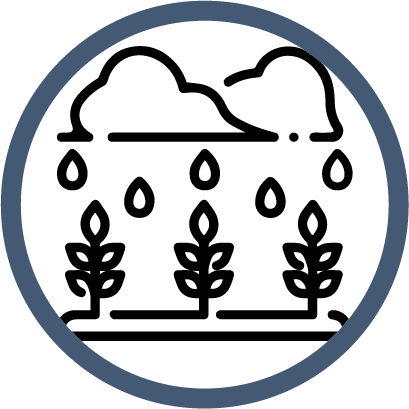
'Depave' and create rain gardens
Residential areas and key roads around the river corridor, such as Folland Lane and Station Road, should be prioritised for protection against river flooding.
There are opportunities for depaving or increased permeability at the extensive car parks, built up areas, schools and industrial areas. This would reduce the risk of surface water flooding.
Prioritising de-paving in key vulnerable areas and introducing targeted rain gardens and SuDS features in new developments and vulnerable community facilities like Cwmamman Utd Football Pitch would improve natural resilience to surface water and river flooding.
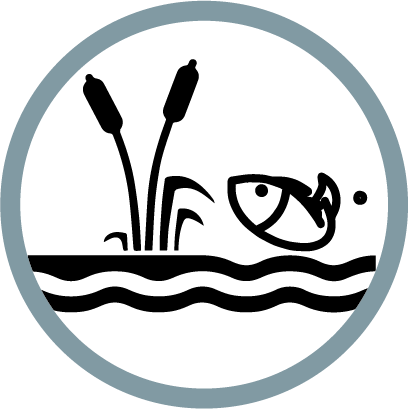
Restore river corridors and wetlands
Natural Resources Wales identified areas along the River Amman and its tributaries where planting additional floodplain and riparian woodland would aid Natural Flood Management (NFM).
Restoring habitats along the town’s key river corridor, the River Amman, would help to provide important aquatic habitats. Riparian planting and wetland management at Parc Golwg Yr Aman and along the riverside would be an opportunity to enhance tree cover and expand habitats.
Improved facilities along the riverside areas would also increase its value as a recreational and visitor economy resource.
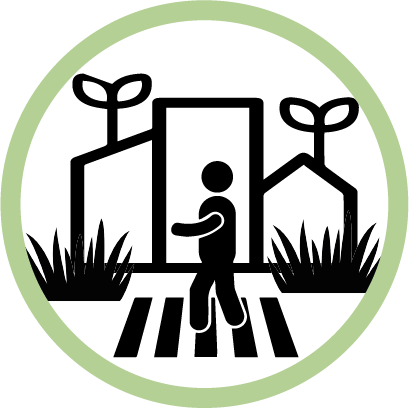
Green the places where people live, work and visit
The high streets of Cwmamman would benefit from urban greening integrated with measures to calm traffic, given the existing dominance of cars detracting from sense of place.
Localised environmental enhancements could include green boundary treatments (streets), improved pedestrian routes, landscaping, pockets parks or green roofs on bus stops – this would create a stronger sense of place and distinctiveness.
Improvements could be targeted around key community assets such as the Amman Valley Makerspace or the proposed Café, Shop and Bike Hire linked with Cwmamman Park – to provide welcoming and attractive outdoor space.
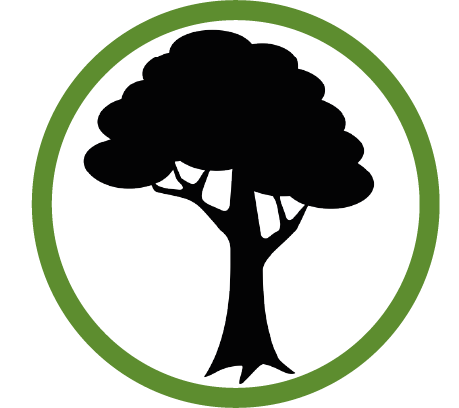
Expand and enhance tree cover
Key corridors where street trees may be most valuable include along key walking routes into the town and the high street. While narrow streets make street trees more challenging, the reconfiguration of some parking spaces can help make space for street trees in even a constrained public realm.
Wider woodland planting in the surrounding landscape will contribute to wider environmental resilience in the landscape.
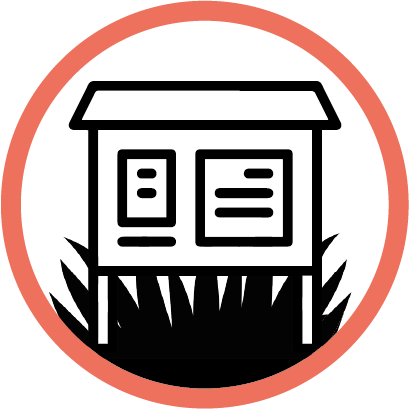
Interpret, educate and tell stories about the environment
Interpretation boards around the town’s rivers, woodland and green spaces could highlight bird watching opportunities and provide information on local habitats and species. The integration of water quality monitoring systems in the River Amman could also report live data on water quality or flooding. This could be made accessible to the public and education providers, helping local people learn about their local environment and the stresses it faces.
Improving the signage at key entrance points would also be valuable – including throughout the Gelliwerdd recreation park, at the Old Bethel Chapel and on riverside routes linking to the Brecon Beacons.
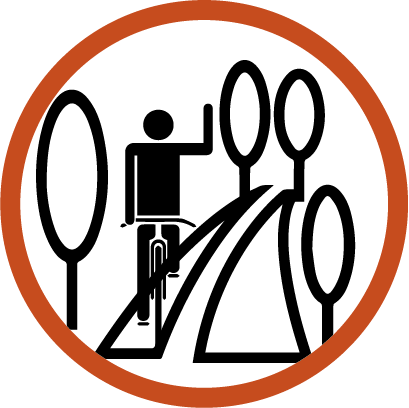
Provide green routes to walk and cycle
Key destinations which can be better connected through green routes include – the town centre, Ynysdawela Nature Park and the Brecon Beacons National Park.
Improving footpaths through the town and offering improved seating and planting would improve the experience of place and should focus on reconnecting the town to the River Amman. High quality wayfinding will be important, particularly to encourage increased tourism passing through the town.
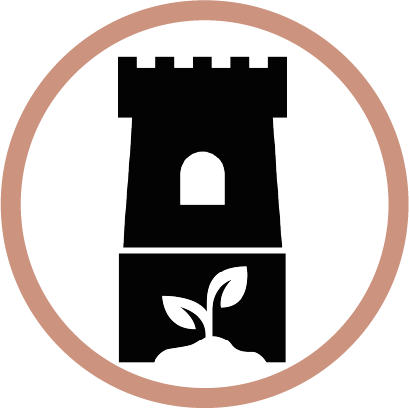
Create a green setting for heritage assets
Creating high-quality green places where visitors and locals can enjoy Cwmamman’s heritage assets, such as the Old Bethel chapel, would increase the sense of place within the town. This might include areas of wildflower and seating.
Gelliwerdd recreation park and nature reserve and the mature woodland North of Folland Road and east of Heol Felen could be better managed and expanded. Planting could also be expanded at the boundaries of the Golf Club.
Opportunities exist as part of the Amman Valley MakerSpace project to make equipment and woodland space available to the community – which allows for felled timber to be processed within the community and used for sustainable products.
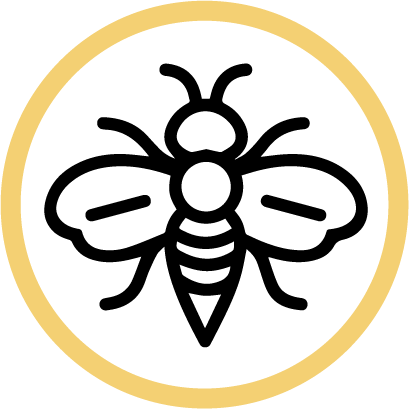
Rethink the functions of parks and grass areas
Opportunities to provide multiple functions within existing green space can be found north of Amman Valley Hospital, at Garnant Golf Course, and at the Parc Golwg Yr Aman car park. This could involve habitat creation and the shaping of a ‘wilder’, less managed landscape.
Wildflower planting should be pursued along mown grass verges – particularly at the “gateways” to the town – creating a more attractive first impression along with valuable linear habitats.
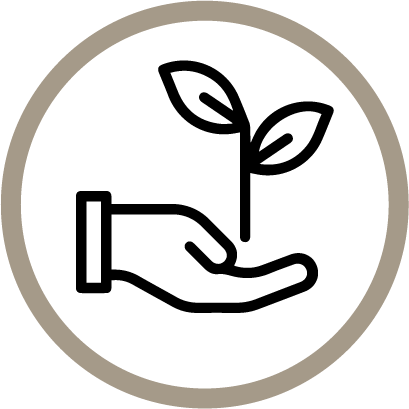
Find space for community growing
Stakeholders consulted for this Strategy highlighted opportunities exist at Parc Golwg Yr Aman, the Garnant Family Centre Community Garden, and the Land west of Bryn Lloi Road for the development of community growing spaces.
Other disused areas of open space should be explored for potential transfer to community groups as community gardens.
In addition, growing spaces established in the grounds of Cwmamman’s schools could also function as outdoor classrooms. Within these grounds, living walls and rain gardens features would also reduce surface water run-off and combat air pollution.
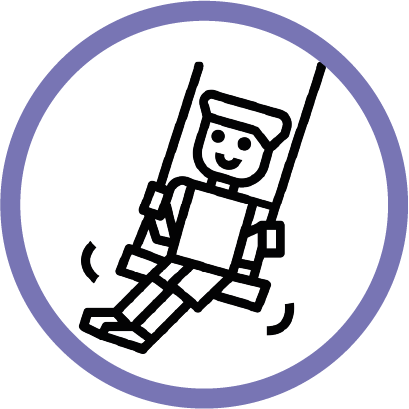
Create playful spaces
Existing play spaces in Cwmamman – such as Gelliwerdd recreation park, Parc Golwg Yr Aman and at Cwmamman Park – could be enhanced with more opportunities for nature-based, imaginative play which also benefit biodiversity.
However there is also an opportunity to weave “playful spaces” throughout Cwmamman’s GBI network, by providing incidental play features (such as landscaping or public art) along river corridors. This would make the area more inviting and sensory to explore on foot at all ages.
Key opportunities in Cwmamman beyond GBI include boosting the local economy and high street, as well as building on the town’s strategic location to develop space for both industry and nature-based tourism. This is discussed further in the Economic Growth Plan for Cwmamman.